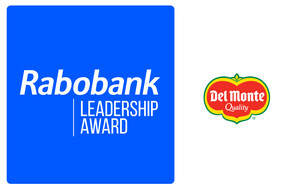
Rabobank Report: Structural Changes Emerging In Mexico's Corn Market
CONSTRAINTS IN PRODUCTION GROWTH TO CONTINUE FOR 5 TO 8 YEARS
MEXICO CITY, July 31, 2013 /PRNewswire/ -- Rabobank has published a new report identifying structural changes that are emerging in the Mexican corn market, resulting from constraints in the growth of corn production.
The report, published by the bank's Food & Agribusiness Research and Advisory team, says that, since 2009/2010, Mexican corn production has faced difficulties due to decelerating yield rates and declines in planted area. Rabobank expects this situation to continue for the next five to eight years and says that anticipated market conditions, including market failures, weather conditions, and bearish prices, are unlikely to increase production.
As a result, Rabobank analyst Pablo Sherwell sees four key structural changes in the Mexican corn market:
- White corn consumption trend is declining after a historical increase.
- White corn imports have increased as demand destruction has not been high enough to compensate for the lack of production growth.
- As Mexico becomes a more active and sophisticated importer, it will look to import yellow corn from Brazil and white corn from South Africa, rather than relying only on the U.S.
- Yellow corn used for feed has been decelerating while other grains, such as sorghum and wheat, have been playing a more active role in feed.
Sherwell says, "Mexican corn production has been stuck at 21 million tonnes, as white and yellow corn levels struggle to surpass the 19 million tonne and 2 million tonne ceilings, respectively. Given current conditions, we expect this production level to hold at least until 2016/2017, but under certain conditions, there is potential for Mexican corn production to stay flat even as late as 2020/2021."
Rabobank says that the current production level and expected continued lack of growth are driven by two factors:
- First, the planted area for Mexican corn is decreasing: from 2000 to 2012, the rain-fed area dropped from 7.34 million hectares to 6 million hectares, while the irrigated area increased from 1 million hectares to around 1.5 million hectares. Rabobank expects the decrease in the size of the rain-fed area will continue to outpace, in absolute values, the increase in size of the irrigated area. Producers of rain-fed crops, usually farmers of small to medium size operations, have found better opportunities in producing other crops, including vegetables such as avocados or even sugarcane, as has been seen in the State of Jalisco. In addition, some producers have switched from corn to other crops due to market failures, such as limited access to rural roads and markets or lack of storage, which have been a disincentive to corn production.
- The second factor limiting production growth has been decelerating yield growth, which is largely the result of expected lower prices that reduce farmer incomes, discourage the use of fertilizers, and reduce investment. Furthermore, the majority of the planted area is rain-fed, and the country has been experiencing recurrent weather events. Yield growth is also being impacted by the lack of new technological adoptions, such as inadequate irrigation infrastructure, absence of high-tech machines such as harvesters, and the modest use of hybrid seeds.
Rabobank's expectations for the Mexican corn market will hold if current conditions, including our price assumptions, remain constant in the long run. However, there are many factors beyond weather improvements that could change the bank's forecasts, such as the adoption of better technologies, including the use of hybrid seeds. In addition, the acceleration of new technologies in irrigation, planting and harvesting machinery, technical assistance, storage facilities, as well as the improvement of market access, would erode the current resistance in corn production growth.
In the meantime, Rabobank says that the Mexican corn market will continue to experience significant structural changes.
Rabobank's report on the Mexican corn market is available to media upon request.
Rabobank Group is a global financial services leader providing wholesale and retail banking, leasing, real estate services, and renewable energy project financing. Founded over a century ago, Rabobank is one of the largest banks in the world, with nearly $1 trillion in assets and operations in more than 40 countries. In North America, Rabobank is a premier bank to the food, beverage and agribusiness industry. Rabobank's Food & Agribusiness Research and Advisory team is comprised of more than 80 analysts around the world who provide expert analysis, insight and counsel to Rabobank clients about trends, issues and developments in all sectors of agriculture. www.rabobank.com/f&a
For a social media-ready version of this press release: http://rabobank-food-agribusiness-research.pressdoc.com
Follow us on Twitter: @rabofoodagri
SOURCE Rabobank







Share this article